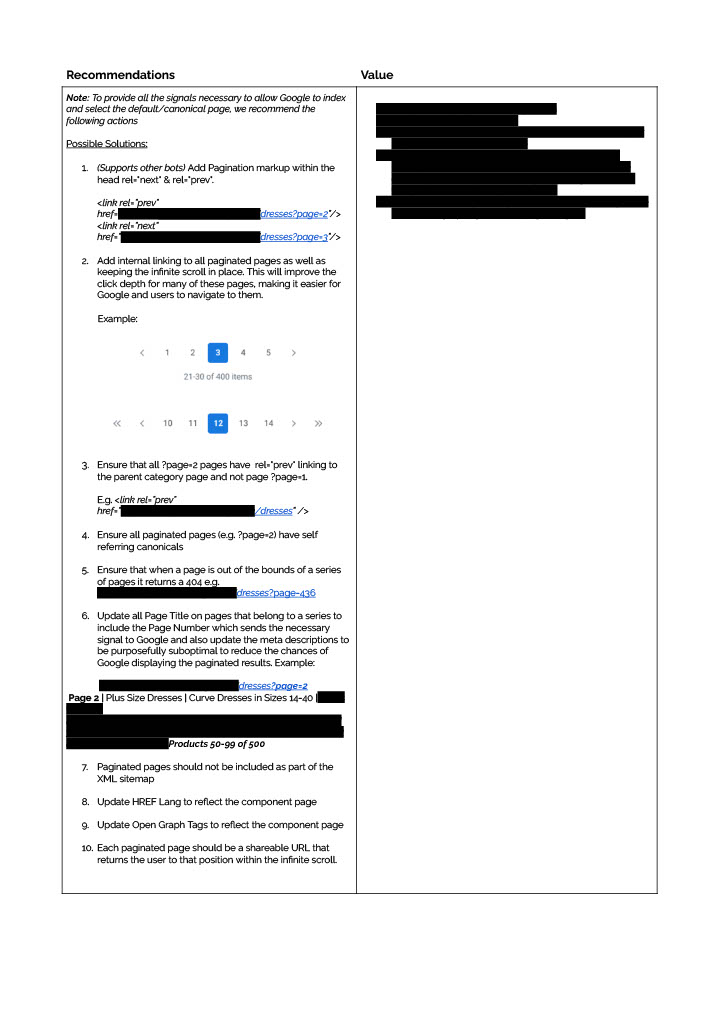Bring Digital’s SEO Director, Michael Scowcroft, explains why building solid relationships with your developers is essential when embarking on SEO projects — and how you can craft briefs that help them do their best work.
When I was growing up, I remember my teachers always saying to me: “Developers make the web go round.”
Well, they didn’t really say that, but they probably should have done — because it’s true. Without developers, those successful eCommerce websites would fall into disrepair or wouldn’t even be built in the first place.
Yet developers are too often an afterthought on big SEO projects. For every ambitious SEO manager with a list of weird and wonderful tickets as long as their arm, there’s a team of tired web developers trying to figure out why it’s worth their time when there are a dozen other “priority” projects for them to juggle.
But there is a better way. If you’re considerate of your developers at the beginning of the process, you’ll get far better results in less time and nurture healthy working relationships along the way.
In this blog, I’ll explain how you can better understand your developers and how to craft dev-friendly tickets that get delivered in record time.
Taking the time to understand what your dev team is dealing with at any one time will pay dividends when it comes to getting their buy-in later.
Here are three things to consider before approaching your developers with SEO tickets.
Before I worked at Bring Digital, I spent several years working in-house at a huge eCommerce brand in Manchester. The development team there was vast: in fact, there was an entire floor dedicated to just devs.
Looking at it, you’d think the resource was infinite. Nothing could have been further from the truth.
When I spoke to the developers and scrum masters, it became clear that the requests for changes scale faster than the development team can grow. They were inundated with requests from every department, each with major projects that hadn’t been correctly scoped or “small” technical fixes that actually unearthed major maintenance jobs.
Remember: even well-resourced development teams will have an overflowing backlog. When preparing tickets for your development team, ask them about their current projects to understand which requests you’ll be competing against.

Developers often have to juggle your requests with those from dozens of other stakeholders.
When I worked in-house, I discovered that most dev tickets are labelled, rightly or wrongly, as “high priority” — and clearly haven’t been cross-referenced with requests from other departments.
The development team was then left to decode what was actually a priority in the grand scheme of things: what would have the most significant impact on business goals. Even then, people could pull rank to ensure their project was done before the others.
In a world where everyone is trying to shout the loudest, it pays to be someone your developers know and trust.
Developers have a LOT to learn. There’s little room left for them to be technical SEO experts between multiple programming languages, databases, and version control.
That said, most developers — especially front-end devs — know the basics of on-page SEO. A good developer will structure their code so search engines can parse them quickly, and tidy code is good for everything.
It’s important to remember this when talking to your developers about your project. Most of the time, you won’t need to dwell on the fundamentals; instead, focus your discussions on slightly more advanced elements like optimised pagination, robots.txt, and XML sitemaps.
Your job is to know what to do; they can usually figure out the “how”.
Once you understand what your developers are dealing with daily, you can figure out how to make their lives easier when pulling together a brief.
Here’s the process we use at Bring Digital to make dev-friendly briefs every time.
A brief should be like a recipe: you need to know what you’re getting from it before looking through the method.
A good recipe will say what you’ll end up with (a Victoria sponge cake, for example — a favourite of mine), and the prep time, difficulty, and what you’ll need to complete it. Your SEO tickets must do the same so your developers or scrum masters can neatly categorise your ticket among similar ones.

Like the recipe for a cake, a good tech ticket will should clearly explain the end result, time to implement, and difficulty.
Make life easier by quantifying three things right at the top of your brief:
Next, you should explain what the problem is, how you discovered it, and the negative impact it’s currently having on the site.
Explaining how you discovered the problem first allows your developers to try and replicate themselves. That way, they can eliminate anything you have yet to account for that could contribute to the issue.
I like to include plenty of screenshots to illustrate the issue precisely, with examples of similar sites that have executed a solution I consider ideal. I’ll generally throw in a view of the live site and a snippet of the code with a link to the URL so the developers can jump in and understand it for themselves.
This is the “method” in your recipe (to continue this strained metaphor). Tell your developer how you’d recommend fixing the problem and why you think that’s the best approach.
Be careful, though: there’s a balance you need to strike between micromanaging your developers and leaving everything open for their interpretation.
The best way to strike this balance is to back your recommendations with citations and data. That way, you give developers a chance to a) understand the theory behind your decisions and b) identify a potentially more efficient way to achieve the same end goal.
If you’re suggesting something based on a recent Google announcement (and let’s face it, half of your tickets will be), include a link to the original developer notes. If there’s a study with new data quantifying the value of a page speed improvement in your niche, add a link to all the unfiltered stats.
Once you’ve put all of that together, here’s how it might look:




This will set you up nicely for the next (arguably most important) stage: talking directly to your development team.
The trap I see SEOs most often fall into isn’t actually to do with how they prepare the brief — it’s in how they deliver it.
Formal ticketing systems are excellent for keeping projects organised, but it’s a mistake to drop your brief in there like a postcard and expect perfect results in a few weeks.
I’ve learned that you need to talk through your brief with your developers to guarantee the best outcomes. You don’t need to do this on a brief-by-brief basis; instead, bundle tickets together that are part of one project (e.g. any ticket to improve site speed) and schedule a call to run through them.

Talking developers through your initial tickets is an essential step in cultivating mutual understanding and generating new ideas.
By growing SEO advocates within the development teams you work with, the health of those sites improves exponentially over time. The long-term gains are worth the short-term pain.
Speaking with developers with an in-depth understanding of JavaScript and SQL queries is easy enough for SEOs with technical backgrounds. But it can be a scary prospect for SEO strategists from backgrounds like copywriting or PR
If that’s you, here are my three top tips for working with developers:
Even a fantastic relationship with your development team will fail to get the results you need if you’re not sure which tickets to draft up in the first place. That’s where we can help.
Whether you need an audit of your existing site or a complete migration plan for your new one, get in touch today to find out how we can help you with your technical SEO projects.











